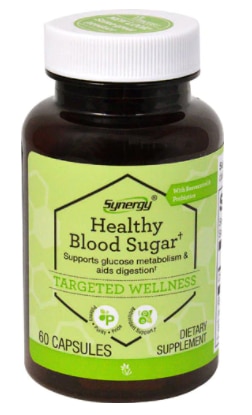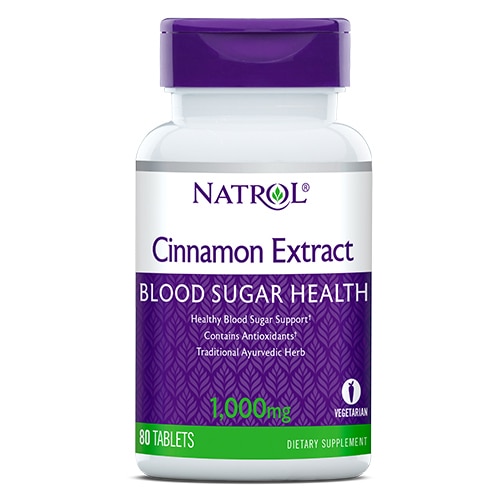If you find it impossible to keep from reaching for the chips and dip before bed, your blood sugar could be to blame.
Those who experience large dips in their blood sugar levels several hours after eating remain hungrier than others -- and end up eating hundreds more calories each day, according to
a recent study published in the journal Nature Metabolism.

As part of the study, participants wore stick-on continuous glucose monitors that tracked their blood sugar levels throughout the research period.
Researchers noticed that some participants recorded significant "sugar dips" a few hours after eating a meal. Those registering such declines in blood sugar had a 9% increase in hunger and on average ate their next meal a half-hour sooner than little dippers.
As a result, these participants ate hundreds of calories more on a daily basis than others who participated in the study. The researchers note that consuming just a few hundred extra calories each day can result in several pounds of weight gain over the course of a year.
The study findings help confirm a trend that long has been observed, but rarely researched, says
Sharon Palmer, a registered dietitian nutritionist known as "the plant-powered dietitian," and author of the book "
California Vegan."
"It makes sense: When your blood sugar drops, then your body is telling you to eat something by sending hunger messages, so that blood sugar can rise again," she says.
What causes blood sugar to drop?
Palmer notes that while we each have a unique metabolism, there are a few things that tend to contribute to dramatic rising and falling of blood sugar. They include:
- Irregular meal intakes
- Consumption of refined carbohydrates
- Lack of balanced macronutrients at meals (such as protein, fats and carbohydrates)
- Lack of fiber intake
Palmer cites the example of eating a highly refined breakfast -- such as a white bagel with jelly -- but not balancing it out with fat and protein.
"Those carbs are refined," she says. "Thus, they raise the glucose quickly, and then it falls more quickly."
As a result, "you are going to feel hungrier more quickly than if you had a fiber-rich, balanced-in-macros breakfast," she says.
An example of a more balanced breakfast would be a bowl of
whole grain oats with
almonds, berries and
soy milk. "There is fiber, protein and healthy fats there, and the whole grains are slower to digest," Palmer says.
Steps for keeping your blood glucose levels from falling
Falling blood glucose levels can lead to a host of short-term problems, including:
- Weakness
- Dizziness
- Lightheadedness
- Anxiety
- Irritability
Over time, the long-term effects of falling blood sugar levels can be more serious, including a higher risk for heart disease and nerve damage.
To prevent blood sugar dips, Palmer says you should get to know your own body better.
"If you suffer from glucose dips, then you might want to split your meals into smaller more frequent feeding -- perhaps small meals, and a small
snack halfway through that contains protein, fiber and fat too," Palmer says.
She recommends switching from refined grains to
whole grains, which have a much lower glycemic index.
"Reduce added sugars significantly," Palmer says. "Instead, include whole fruits instead of fruit juice for natural desserts."
Finally, she suggests eating more pulses, which are rich in protein. "Balance your meals with protein, healthy carbs and fats," she says.
Featured product:

 As part of the study, participants wore stick-on continuous glucose monitors that tracked their blood sugar levels throughout the research period.
Researchers noticed that some participants recorded significant "sugar dips" a few hours after eating a meal. Those registering such declines in blood sugar had a 9% increase in hunger and on average ate their next meal a half-hour sooner than little dippers.
As a result, these participants ate hundreds of calories more on a daily basis than others who participated in the study. The researchers note that consuming just a few hundred extra calories each day can result in several pounds of weight gain over the course of a year.
The study findings help confirm a trend that long has been observed, but rarely researched, says Sharon Palmer, a registered dietitian nutritionist known as "the plant-powered dietitian," and author of the book "California Vegan."
"It makes sense: When your blood sugar drops, then your body is telling you to eat something by sending hunger messages, so that blood sugar can rise again," she says.
As part of the study, participants wore stick-on continuous glucose monitors that tracked their blood sugar levels throughout the research period.
Researchers noticed that some participants recorded significant "sugar dips" a few hours after eating a meal. Those registering such declines in blood sugar had a 9% increase in hunger and on average ate their next meal a half-hour sooner than little dippers.
As a result, these participants ate hundreds of calories more on a daily basis than others who participated in the study. The researchers note that consuming just a few hundred extra calories each day can result in several pounds of weight gain over the course of a year.
The study findings help confirm a trend that long has been observed, but rarely researched, says Sharon Palmer, a registered dietitian nutritionist known as "the plant-powered dietitian," and author of the book "California Vegan."
"It makes sense: When your blood sugar drops, then your body is telling you to eat something by sending hunger messages, so that blood sugar can rise again," she says.




